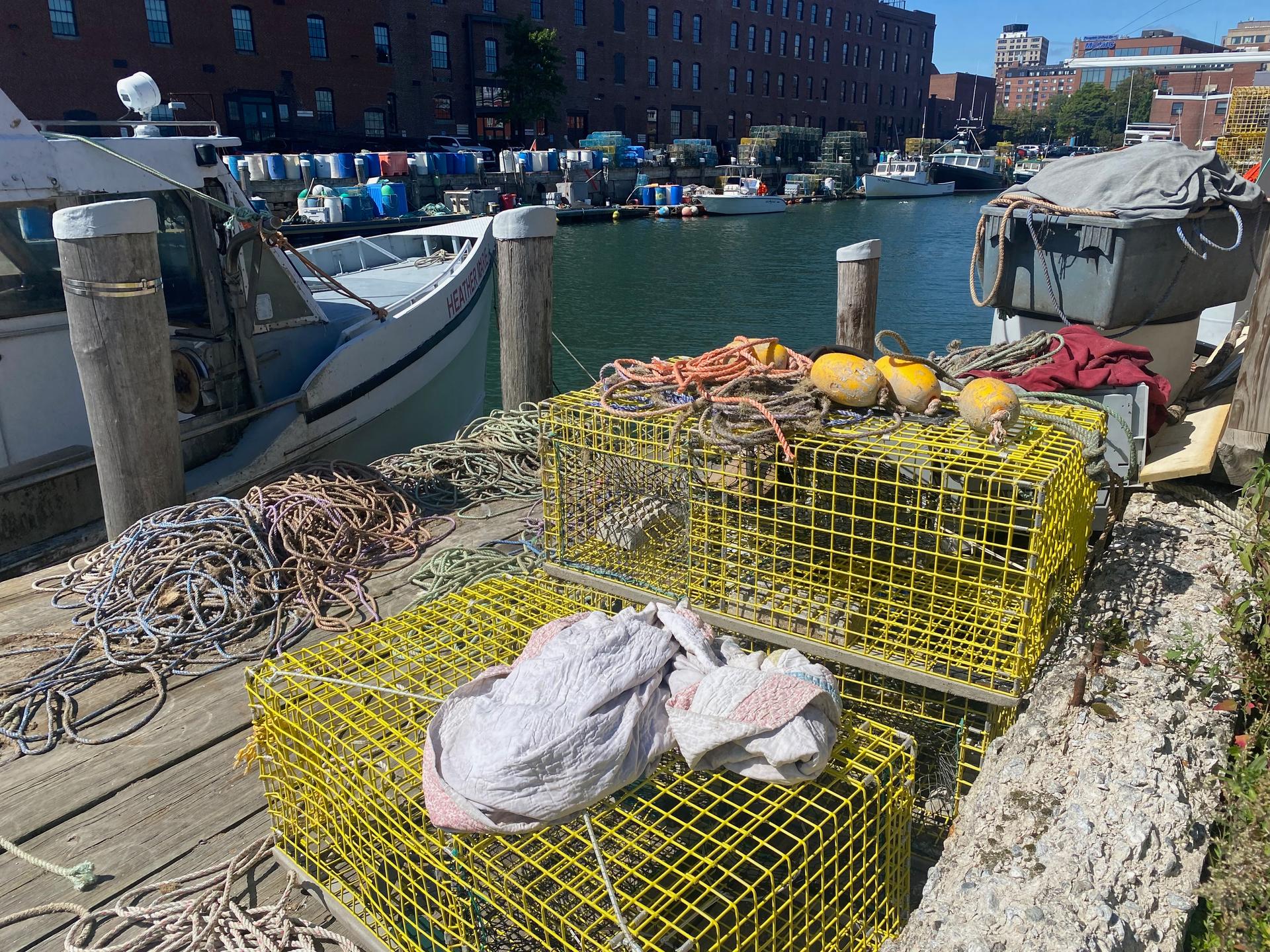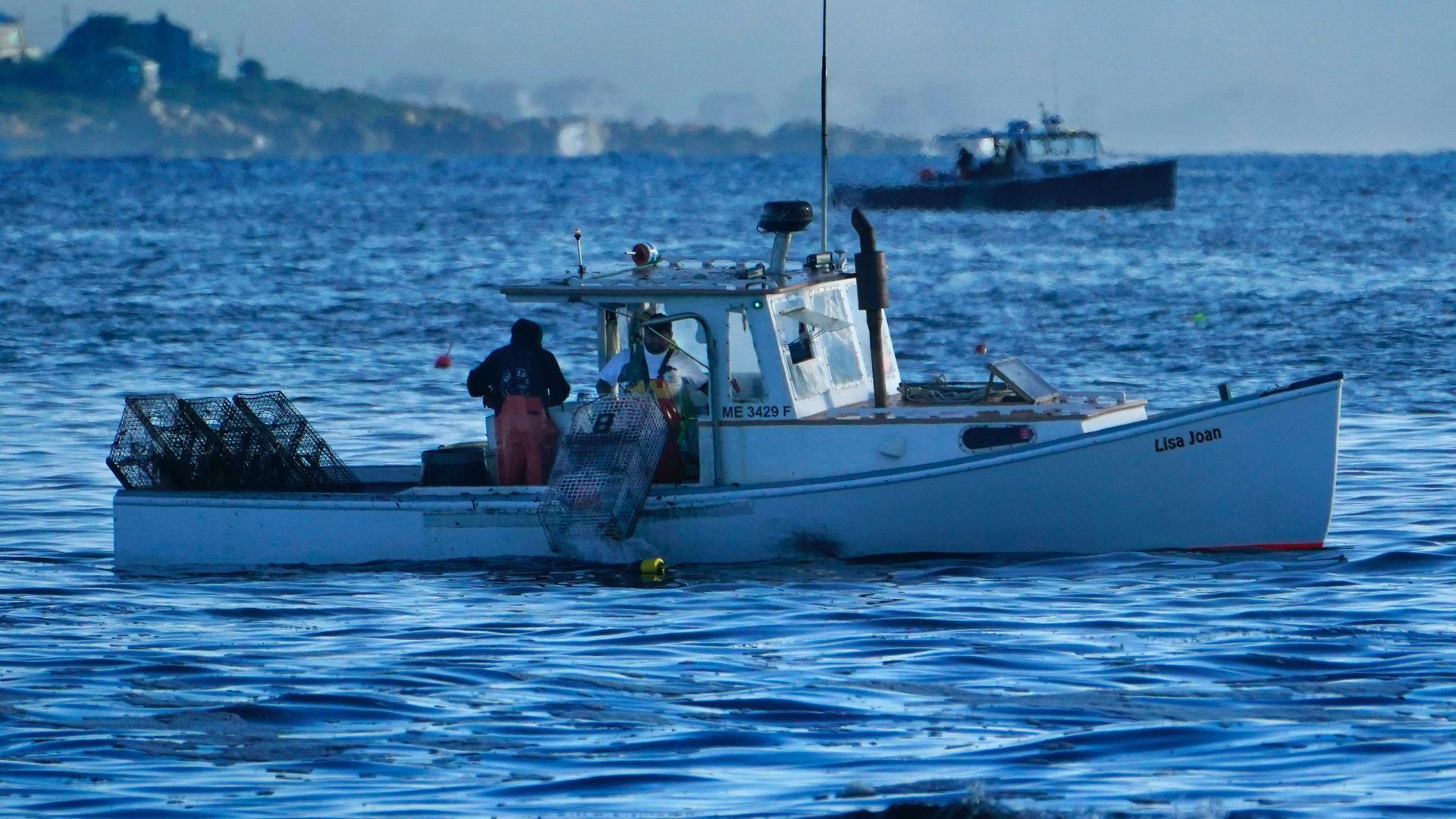Maine’s lobster industry is still feeling the effects of the trade war with China
At Union Wharf in Portland, Maine, seagulls flutter over big, white lobster boats unloading their catch into plastic crates.
It’s a typical day on the wharf — and relatively quiet.
But in the summer of 2018, during former President Donald Trump’s trade war with China, the mood along Portland’s waterfront was different.

Businesses that export Maine’s lobsters abroad received the distressing news that China had slapped the United States with a 25% tariff on US lobster exports. China is one of the most important international markets for Maine lobsters.
“I was just shocked,” said Annie Tselikis, executive director of the Maine Lobster Dealers Association, an organization that supports live lobster wholesalers and lobster processors in Maine. “Lobster was [going to] take a pretty big hit, and it was very scary for a lot of people.”
The next year, Maine’s lobster exports to China plunged by more than 40%. Although many of Maine’s lobster exporters were able to pivot and find new markets elsewhere in Asia and the Middle East, the complications of the trade war with China are still felt by many US businesses all across the country to this day.
For Maine’s lobster exporters, one of the biggest consequences of the trade war has been losing part of the Chinese market to Canada. North America’s lobster fishery is separated by an international border between Canada and the United States. Once tariffs made importing US lobster to China more expensive, many Chinese importers started working with Canadian lobster exporters.

“With the trade war and the tariffs that were placed on US lobster exports, that then gave Canada preferential treatment in the Chinese market because they did not go to market with the same tariffs that we did,” Tselikis said.
Just days before President Joe Biden took office in January 2020, the United States signed a deal with China to mitigate the effects of the trade war called The Phase One Trade Agreement. The deal was supposed to increase US exports to China in a wide range of industries, including Maine lobster, by requiring China to buy an additional $200 billion in US goods and services than they did before the trade war. When the agreement went into effect, a small number of industries saw minimal tariff relief, but the deal did not completely remove any of them.
But two years later, large parts of the agreement are still unfulfilled. Maine’s lobster exports to China still haven’t bounced back. Tariffs on Maine lobster have come down a bit, but they remain in place. Today, the current duty rate for lobster exports to China is 37%, according to the Maine International Trade Center.
In recent years, Canada’s lobster exporters have been doing much larger business with China than their counterparts in Maine.

Stewart Lamont, managing director of Tangier Lobster Company, a live lobster exporter in Nova Scotia, estimates that after China announced its first round of tariffs on US lobster, he received as much as a 50% uptick in business inquiries from prospective clients in China.
“The interest from China grew exponentially,” Lamont said. “All of a sudden, American lobster wasn’t competitive in terms of price, and so, it was an unintentional benefit that came to Canadian exporters.”
The Phase One Agreement was supposed to help bring the China market back for Maine’s lobster exporters and other US businesses affected by the trade war. But even after Phase One came into effect, Lamont said, many of his new Chinese clients stuck with him.
Maine’s lobster exporters were not the only industry let down by the Phase One Agreement. When the agreement expired this year, it surfaced that China had bought none of the additional $200 billion in US goods they had pledged to buy.
Chad Bown, a senior fellow at the Peterson Institute for International Economics who has written widely about the Phase One Agreement, said that the deal looked too aspirational from the start because US exports to China had already fallen so low during the trade war that it would have been hard for China to suddenly start buying so many US goods.

“The cost of the trade war — so, US tariffs on China and China’s retaliatory tariffs — were tremendous for the US economy and a lot of those costs continue to this day because most of those tariffs remain in place,” Bown said.
The Chinese government maintains that they did their best to comply with Phase One.
He Weiwen, a senior fellow at the Center for China and Globalization in Beijing, said that Phase One benefited both countries because it opened some trade back up and got things moving in the right direction. But now, he recommends that the US drop the remaining tariffs to bring China back to the bargaining table to negotiate a new, better deal.
“As soon as the US removes the tariffs, [then] China will remove the counter tariffs, I’m quite confident,” Weiwen said.
For the estimated 20,000 people who are directly employed by Maine’s lobster industry, any hurdle to bringing lobsters to market is a blow to an industry that is having an exceptionally tough year.
Tselikis of the Maine Lobster Dealers Association said that tariffs have put Maine at an unfair advantage with Canada.
“It’s hard to compete in an international market when you’re not on the same playing field,” Tselikis said.
Until the US and China sign a new trade agreement, many US industries will struggle to do business with the world’s second-largest economy.
Every day, reporters and producers at The World are hard at work bringing you human-centered news from across the globe. But we can’t do it without you. We need your support to ensure we can continue this work for another year.
Make a gift today, and you’ll help us unlock a matching gift of $67,000!
